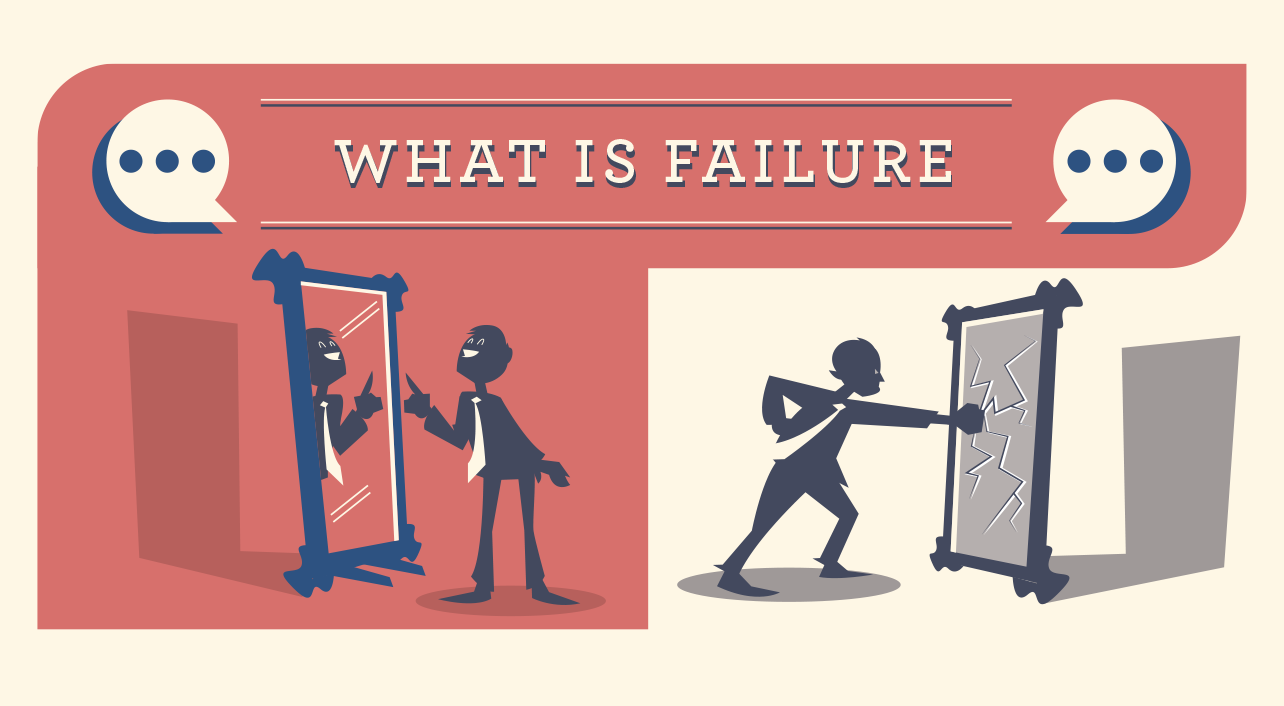- sales
- Blog post
How successful salespeople think about failure
Sales is a profession of intense highs and thumping lows. One week you’re on top of the world because you closed a big sale; the next, you’re doing a post-mortem on the collapse of that important deal you thought you had cinched.
For the most part, there’s not a lot you can do to even out these ups and downs. They’re just gonna happen. But there is quite a bit you can do to even out how you think about the setbacks that sales pros inevitably experience.
To understand what I mean, consider that when you think about anything, you’re essentially talking to yourself about it. So when you think about a failure in your sales work, you’re engaging in “self-talk” focused on that failure.
‘Explanatory styles’
An eminent psychologist, Martin Seligman at the University of Pennsylvania, called this self-talk “explanatory style.” He found in his research that salespeople have different explanatory styles, some of them more productive than others.
Seligman collaborated with a big insurance company to survey thousands of insurance agents, people for whom daily rejection is a fact of life. Some of these revealed themselves to be persistent in the face of setbacks, and others didn’t.
As Seligman studied the results, he noticed that the more persistent agents — those who succeeded in their tough jobs — had a different way of explaining failure to themselves.
The three Ps
Seligman observed that the less persistent and successful insurance agents talked to themselves as if their failures were personal, permanent, and/or pervasive. The successful ones did not.
Here’s how Seligman described these factors in the agents’ self-talk:
Personal: Was it me, or something else?
When encountering a rude prospect, the successful insurance agents tended to use an external explanation. They said, “He was rude because he’s having a bad day.” Unsuccessful agents favored an internal, personal explanation, such as, “I must have said the wrong thing.”
Permanence: Is this going to keep happening, or not?
When successful agents got rejected repeatedly, they said, “This is hard, but it’ll turn around if I keep doing the right things.” Unsuccessful reps sought explanations suggesting the problem was permanent and beyond their control, as in “Our product isn’t good enough.”
Pervasiveness: Was the problem narrow, or all-encompassing?
When successful agents lost a prospect, they focused on why this specific account failed to convert, as in “Cash was tight, so they had to choose the wrong solution just because it was cheaper.” Unsuccessful agents used universal language such as, “Nobody cares about quality anymore.”
Check your self-talk
How can you tell if you’re resorting to self-defeating explanatory styles in the face of setbacks?
Watch your thoughts and your conversation with others about these setbacks. Alarms should go off if you find yourself saying things like, “I’ve lost my touch,” or “the market has completely changed,” or “our product’s too expensive.” These are examples of unhelpful self-talk.
Instead, look for reasons that aren’t personal, permanent or pervasive, and focus on them. Seligman’s research suggests that you’ll be more successful that way.
This blog entry is adapted from the Rapid Learning module “Coaching: How to Help Salespeople Frame Setbacks in a Positive Way,” based on research in the following book:
“Learned Optimism: How to Change Your Mind And Your Life,” by Martin E.P. Seligman, Ph.D. Pocket Books, 1990.

Get a demo of all our training features
Connect with an expert for a one-on-one demonstration of how BTS Total Access can help develop your team.



